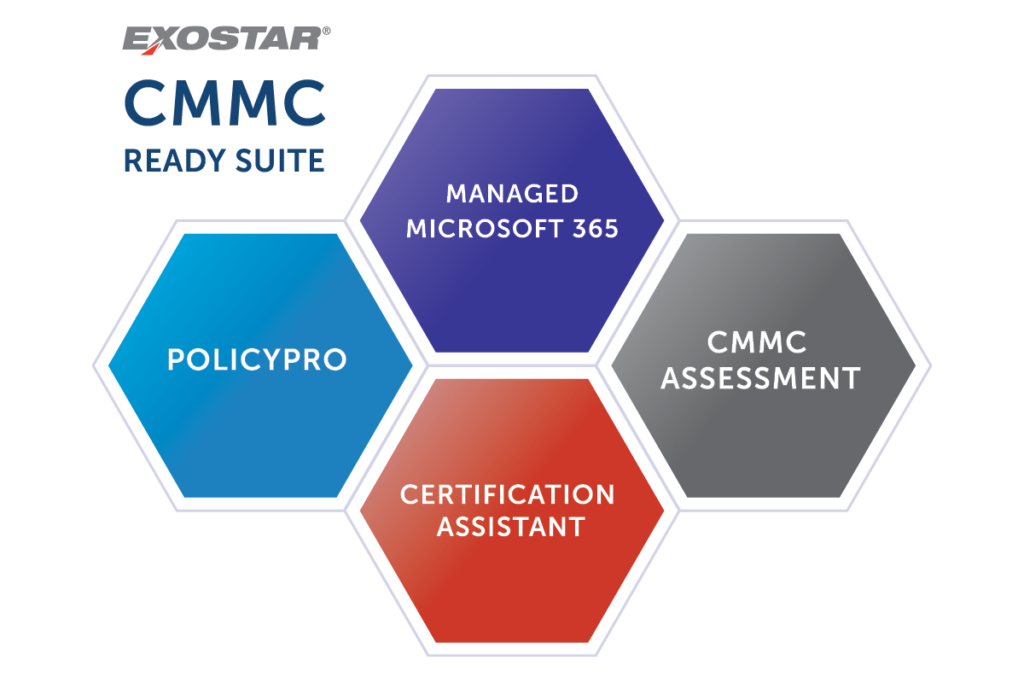
Understanding CMMC 2.0: A Comprehensive Guide for Defense Contractors
What’s New (Updated Program Enforcement)
This blog reflects current CMMC enforcement following publication of the DFARS acquisition rule in September 2025, effective November 10, 2025. CMMC requirements are now being included in DoD solicitations as a condition of award. References to CMMC as “upcoming” or “expected” have been updated to reflect active enforcement under the Final Rule.
Understanding CMMC Requirements in Today’s Compliance Environment
Cybersecurity threats and data breaches continue to increase. As a result, cybersecurity within the Defense Industrial Base (DIB) has become paramount. The Department of Defense (DoD) has worked diligently to upgrade cybersecurity protocols by introducing the Cybersecurity Maturity Model Certification (CMMC). This guide explores recent developments in CMMC 2.0. It explains what those changes mean for businesses in the DoD supply chain.
Understanding CMMC Infographic 2023
What Is the Background of CMMC 2.0?
CMMC provides a standardized set of cybersecurity strategies. These strategies safeguard Federal Contract Information (FCI) and Controlled Unclassified Information (CUI).The DoD initially introduced CMMC as version 1.0. It later revised the framework to CMMC 2.0, focusing on effective implementation of the 110 security controls defined in NIST SP 800-171.
This revision simplifies the certification process while preserving its core mission: protecting sensitive data across all levels of the DIB. By focusing on NIST SP 800-171, the DoD provides a clearer path to cybersecurity maturity. This approach also helps organizations maintain eligibility for DoD contracts.
What Insights Can We Gain from CMMC 2.0?
CMMC 2.0 verifies a company’s cybersecurity hygiene against NIST SP 800-171 controls. Its goal is to strengthen cybersecurity across the DIB and safeguard FCI and CUI against cybersecurity threats. The relationship between NIST SP 800-171 and CMMC 2.0 is direct. CMMC 2.0 relies on either self-assessments or audits by CMMC Third Party Assessment Organizations (C3PAOs), as specified by the solicitation.
Under CMMC 2.0, assessors evaluate organizations based on three maturity levels, with the higher levels requiring third-party assessments conducted by CMMC Third Party Assessment Organizations (C3PAOs). This approach ensures consistent and objective compliance measurement across contractors and subcontractors handling sensitive government information.
The relationship between CMMC 2.0 and DFARS 252.204-7012 remains critical. While DFARS focuses on self-attestation to NIST SP 800-171, CMMC 2.0 formalizes the validation process, transitioning from self-reporting alone to verifiable certification where required.
What Was Achieved in the Recent CMMC Rulemaking Update?
On November 10, 2025, the Department of Defense (DoD) began enforcing CMMC requirements. The enforcement applies across DoD contracts. This implementation date marks the end of a multi-year rulemaking process. The process began when the DoD submitted the CMMC program to OIRA for review in July 2023.
Under the finalized rule, DFARS 252.204-7021 codifies the CMMC program. Defense contractors and subcontractors must demonstrate compliance with NIST SP 800-171. Where required, organizations must also undergo assessment by an accredited C3PAO.
This milestone signals the DoD’s transition from voluntary preparation to mandatory compliance. Beginning in November 2025, DoD solicitations require CMMC certification as a condition of award. This requirement applies to all organizations handling FCI or CUI.
By finalizing and enforcing CMMC 2.0, the DoD aims to strengthen cyber resilience and reduce the risk of data compromise across its vast and interconnected defense supply chain.
What Does CMMC 2.0 Mean for Defense Contractors?
With the inclusion of CMMC in DoD contracts via Defense Federal Acquisition Regulation Supplement (DFARS) clause 252.204-7021 (DFARS 7021) by fall 2024, defense contractors must align their cybersecurity strategies and corresponding tactics with evolving cybersecurity protocols.
Your CMMC 2.0 Journey with Exostar®
Achieving CMMC can be a complex, costly, time-consuming, resource-intensive process. Exostar® offers a comprehensive suite of solutions to assist organizations on their journey, from defining the scope of the challenge to maintaining compliance with cybersecurity protocols. These turn-key solutions help organizations understand expectations, work toward accreditation, reduce non-compliance risk, and best position themselves as a trusted partner eligible to participate in future government contracts.

Exostar’s Managed Microsoft 365™
Exostar’s Managed Microsoft 365™ supercharges the familiar Microsoft Teams environment with enhanced cybersecurity and partner onboarding for external collaboration, making it the superior choice for DoD compliance needs. Meeting 85 of the 110 NIST SP 800-171 controls for CMMC 2.0 “out of the box,” it’s an essential tool for aligning with the rigorous cybersecurity protocols mandated by the defense industry.
Whether a large enterprise seeking sophisticated collaboration tools to better protect intellectual property or a small-to-medium sized business seeking practical solutions that reduce upfront cost and implementation time and burden, Exostar’s Managed Microsoft 365™ bridges the gap. It combines the collaborative functionality of Teams with Exostar’s® top-tier identity and access management and other security measures, allowing your organization to store, handle, and share CUI internally and externally with complete confidence.
If your organization is unsure whether its cybersecurity practices align with current CMMC enforcement expectations, now is the time to reassess. Explore structured approaches that help defense contractors document controls, manage assessments, and prepare for Level 1 or Level 2 requirements under the Final Rule.
Here’s What to Do Now
Defense contractors should confirm which CMMC level applies to their active and upcoming solicitations, validate that NIST SP 800-171 controls are fully implemented or documented in eligible POA&Ms, and ensure SPRS scores and SSPs accurately reflect current practices. Determine whether Level 2 requires a self-assessment or a C3PAO assessment and prepare documentation accordingly. Addressing readiness now reduces risk at contract award.
